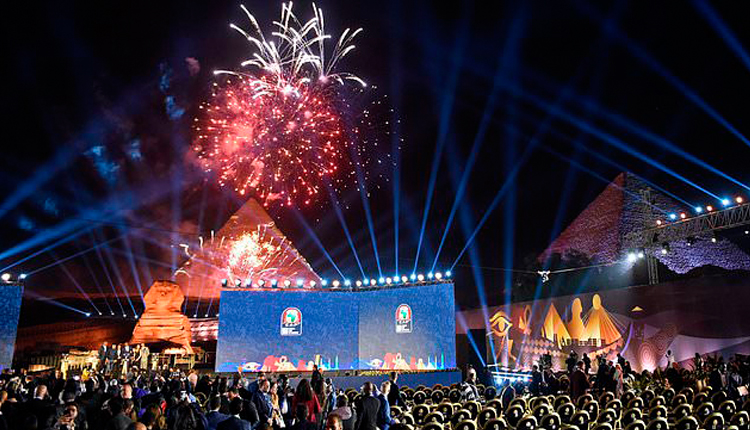Played in the searing heat of the Egyptian summer, against a backdrop of chaos in the regional football governing body and enlarged to an unwieldy 24 teams, this year’s Africa Cup of Nations defied logic and, on the pitch at least, turned into a surprising success.
In terms of drama on the pitch and football quality, the tournament was a step up on previous editions and, encouragingly, teams led by young African coaches reached the final match July 19, with Algeria beating Senegal, 1-0.
There were tears as Algeria forward Baghdad Bounedjah, who scored the only goal in the final, wept inconsolably on the bench after missing a second-half penalty and being taken off in the quarter-final against Cote d’Ivoire.
There was also romance as Madagascar, a country that midfielder Anicet Andrianantenaina said was only famous because of the film that takes its name, reached the last eight in its debut at the tournament.
The move away from the traditional January-February slot, following years of complaints from European clubs, to summer appeared to work in the tournament’s favour, even if it was by accident rather than design.
An earlier start had been planned but it was moved back to allow players to rest after Ramadan.
That meant the players arrived for the tournament reasonably fresh, having had time to recover from the European season and that, when the final took place, it was the only competitive football of note being played and did not have to compete for attention.
Some teams showed the kind of stability not usually associated with African football, with Nigeria and Senegal retaining the services of coaches Gernot Rohr and Aliou Cisse, respectively, even though the countries were eliminated following the group stage at last year’s World Cup.
Facilities, including stadiums, were generally regarded as first-class, especially pitches — not always the case in Africa.
“We have good pitches and this one for me is the most important thing,” said Rohr. “You can play good football on these wonderful pitches in Egypt, everywhere, and even the training pitches.”
Unfortunately, fans often found it difficult to get into those facilities because of a complex online-based ticketing system, which many said was plagued by glitches and Byzantine security restrictions.
This, added to the traditional travel difficulties, resulted in many games played in near-empty stadiums — an age-old problem that still has not been addressed.
Source: Reuters


